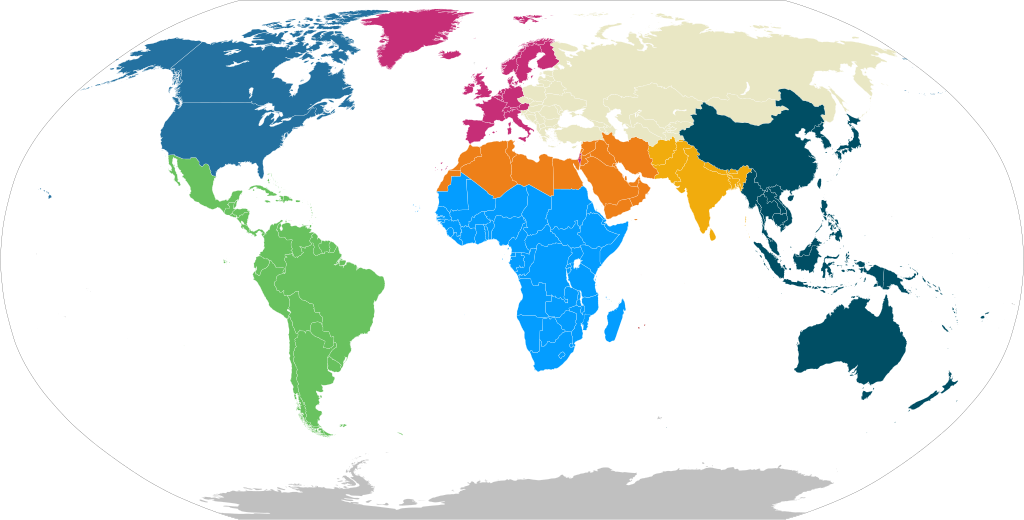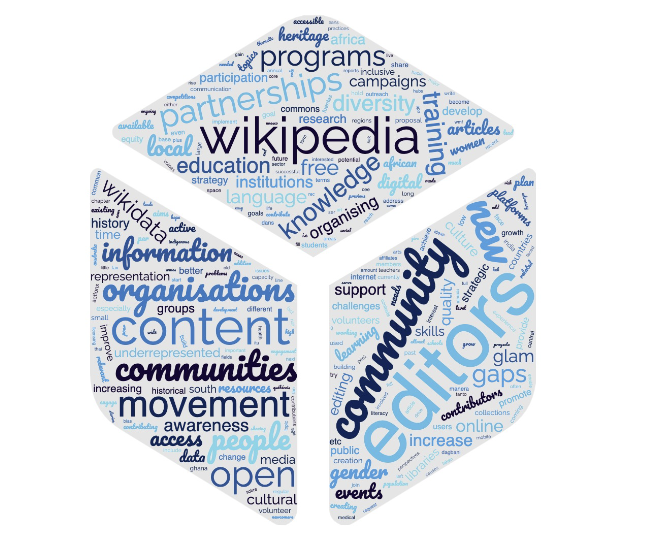In our movement, many of the funding decisions regarding our affiliate organizations happen through the Wikimedia Community Fund. The primary funding mechanism, the General Support Fund, allows grant applications in two annual funding rounds to the 8 Regional Funding Committees. As a member of the regional committee for North America (in reality only United States and Canada) for the past few years, I have been considering, reviewing and helped decide on thoughtful allocation of resources in this region. If you’re interested in more details, you can find a lot of information on Meta.
The grant system and all its nuances, let alone all the possible changes and improvements in the funding decision landscape, could fill a series of posts. For now, I would like to focus this discussion on our committee’s challenges with multi-year funding this cycle. I aim to shed some light on our struggles and discuss the approach we ended up taking this year. Hopefully this will spark some useful conversations among colleagues that can help our ongoing effort to redefine our movements resource allocation structure. Essentially my dilemma is the likelihood of limited funding in light of an increasingly developing affiliate landscape in our region. I would propose an alternative way to support grantees over a longer time horizon, without borrowing too much from future budgets.
The North American affiliate system is interesting, although I don’t know enough about other regions to say with certainty how unique these circumstances are. Traditionally underdeveloped in terms of geographical affiliates (the only chapters are Wikimedia Canada, Wikimedia DC and Wikimedia New York City, which all are relatively new to professionalization, compared to their European counterparts) and there is a lot of potential for further development of community supporting organizations. The region is also home to a number of very much professionalized thematically focused affiliates; notably the Wiki Education Foundation, Art+Feminism, Black Lunch Table, Whose Knowledge and AfroCROWD have received substantial grants over the past years.
In recent years our committee was in the privileged position to primarily vet applications on feasibility and effectiveness, with limited need to consider trade-offs between proposals and approving most. This decision making landscape is rapidly changing as the budget growth is modest and the professionalization of the grantees is accelerating.
The overall budget for our region for fiscal year 2023-2024 is $2.4 M (more information about the grant system across regions from last year). This includes the standard grants approved in the recent and upcoming application cycle, payments to multi-year commitments from previous years ($1.1 M this year) and Rapid Funds (estimated $0.03 M – I will ignore these going forward). Effectively, our committee has just over a million to allocate this cycle and another few hundred thousand in the next. The three grantees with the largest dollar amount grants consume about half the grant budget for the region and the largest grantee requested about 25% of the region’s budget. I suspect that in a hypothetical world with unlimited resources, they would probably be able to spend this quite effectively towards our shared mission of free knowledge.
Costs have rapidly increased across the world, and this is no different in North America. The grants budget has seen a modest about 6% increase last year. Moreover, several of the affiliates in the region, both thematic and geographic, are professionalizing, and I suspect that there is still much untapped potential to see geographical affiliates develop in the region. While I’m very excited to see these affiliate programs develop so well, it also presents the committee now with increasingly difficult decisions for upcoming rounds of proposals. We may have to significantly scale back proposals or deny their funding altogether: not because the proposals are poorly serving our movement and mission, but because they are competing for a limited amount of funds.
In 2021, after many years of discussion, multi-year grants were introduced as a way to promote a more sustainable, healthy and diverse movement (as part of a broader revision of our grants structure). This clearly allows grantees to better plan for the future and be a more stable partner and employer, while avoiding to go through an exhaustive and uncertain grants process each year. We have been able to use this instrument to support trusted affiliates for multiple years at a time, if they had a solid strategic plan in place.
This year has at least in our region underlined the limitations, particularly with larger grantees. Balancing support for these trusted grantees with allowing growth for smaller organizations and new initiatives has become a formidable challenge. Each large multi-year grant will mean that the total available budget for smaller and new grantees to compete over is even smaller. This leaves us with a hard choice: do we solidify some of our decisions for multiple years in a rapidly developing field, or do we deny grantees the advantage of stable funding and a limited bureaucracy of flexible grant funds to optimally serve their mission?
Our committee has eventually landed on a compromise: approving multi-year grants only up to a ceiling (currently $200k) with the opportunity for those grantees to request one-year increases which the committee may support contingent on budget limitations. This way, grantees maintain the certainty of a base funding for an extended period and don’t have to write an entire grant proposal each year. At the same time, the committee retains flexibility to make meaningful informed decisions in the future, considering not only the grantees of today, but hopefully also new initiatives that will develop, experiment and bloom in the upcoming years.
Personally, I am a strong believer in our affiliates. They support the volunteer-driven advocacy, outreach, recruitment, education and collaborations that help our editing communities to sustain themselves, grow and learn. Our community faces plenty of challenges and we need a wide range of organizations to support our editors’ work effectively, all in their own specialized ways. However, I also stress the importance of preserving space for new initiatives to blossom – the balance between long-term funding and potential for innovation, and is essential.
I am proud of all the work that is supported through these grants each year – from including Wikipedia in classroom settings to edit-a-thons on underdeveloped topics, to collaborations with museums to workshops for our editors. These funding challenges are not exactly new, and probably mostly new to us. As a movement we are and have been incredibly privileged with the generous support from so many donors that allow us to work on free knowledge. In the past, volunteer time was often more of a constraining factor in program design than budget – and I anticipate this may change, if it hasn’t already.
As we navigate these challenges, I encourage my colleagues who consider grant proposals in other regions as well as those involved in designing future funding mechanisms to explore and allow creative policies that maintain the value of long-term funding while nurturing our ability to launch and grow new initiatives. Grantees’ perspectives on these considerations are invaluable and I hope they will also contribute to these conversations. Together, we will have to ensure the ability to support our shared mission of free knowledge.
Lodewijk Gelauff is a member of the Regional Fund Committee for North America. This post is based on his personal views and experiences and should not be taken to represent the position of the Committee or the Wikimedia Foundation.

Can you help us translate this article?
In order for this article to reach as many people as possible we would like your help. Can you translate this article to get the message out?
Start translation

